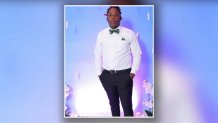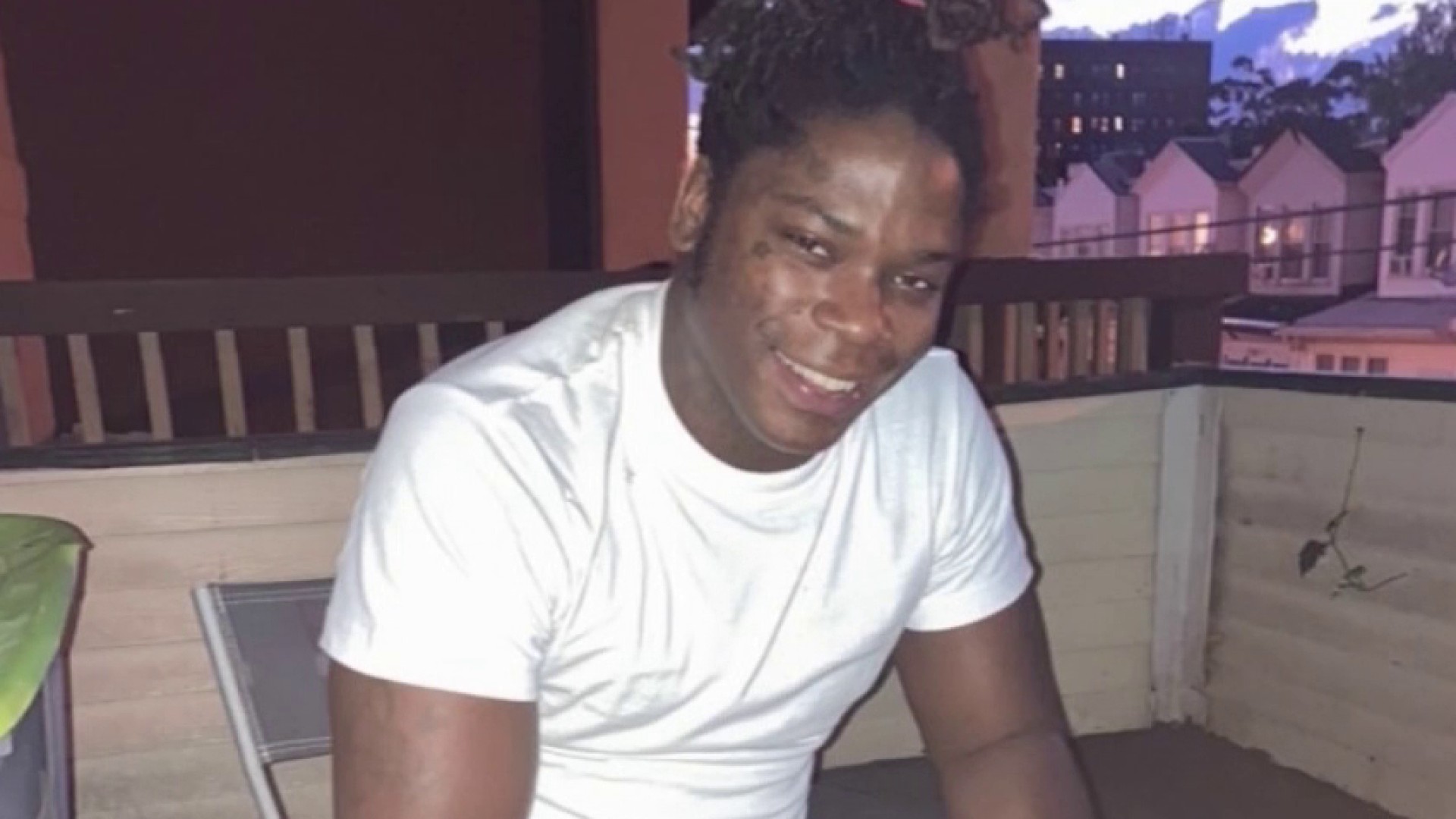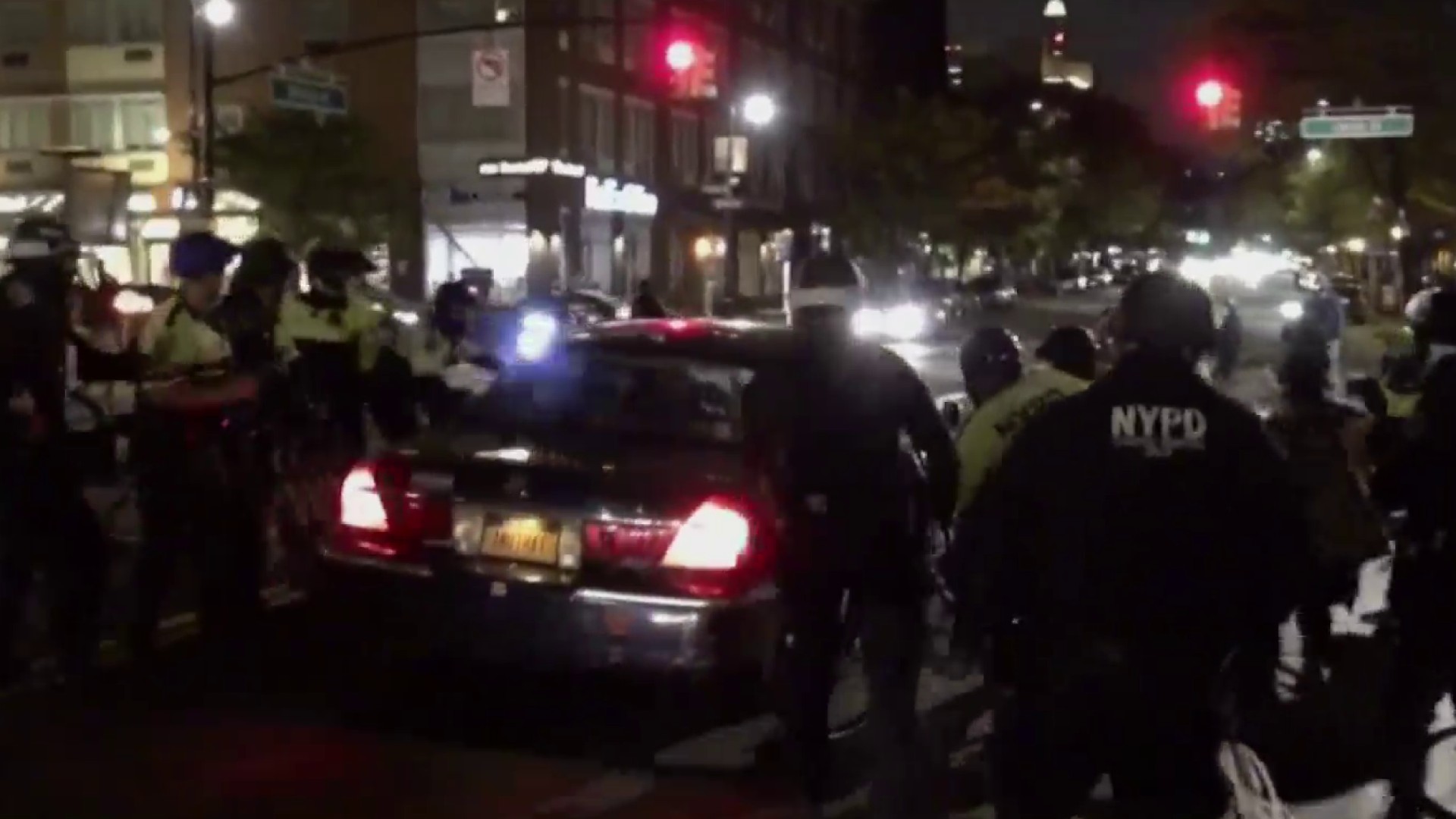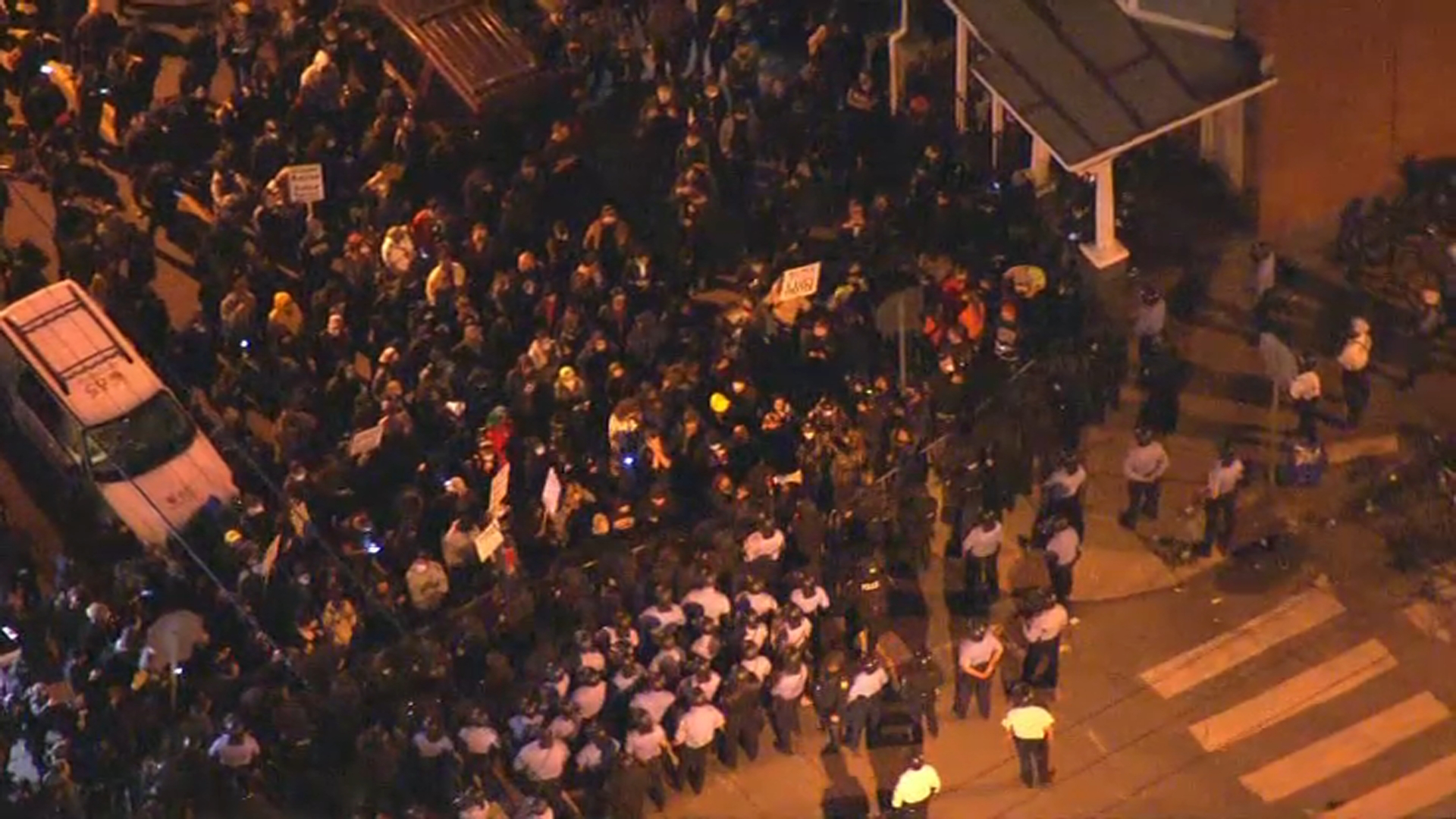A day after he was shot and killed by two police officers, sparking protests and a night of civil unrest in Philadelphia, family members of Walter Wallace Jr. are speaking out, describing him as a husband, father and aspiring musician who struggled with mental health issues.
“Mental health is real,” Sam White, Wallace’s cousin, told NBC10. “Depression is real. That’s something that we have to look at as a society. How we engage and we interact when those happen. How the police respond when you deal with a crisis situation.”
On Monday Philadelphia police responded to reports of a person screaming as well as a report of a 27-year-old male assaulting an elderly female at a home on the 6100 block of Locust Street.
When officers arrived they found Wallace holding a knife, according to investigators. A viral video of the incident shows Wallace, a Black man, walking toward the officers while a woman, who a witness identified as Wallace's mother, tries to stop him. Two armed police officers back away from Wallace and tell him at least twice to "put the knife down" though it's unclear from the video whether or not Wallace is holding a knife.
As Wallace continues to approach the officers, the camera briefly points downward and the sounds of several gunshots are heard as the police open fire. The camera then rises again, showing Wallace motionless on the ground as his mother runs toward him, screaming hysterically.
Anthony Fitzhugh, Wallace's cousin, told NBC10 the man's father also witnessed the shooting.
"They're never going to be the same again," Fitzhugh said. "They actually sat and watched their son literally get murdered."
Police revealed Monday that each officer fired at Wallace seven times though it’s unclear how many times he was struck.
“At what point do you draw the line and say, ‘Okay, I’m going over the limits. This no longer falls into my job description. This is murder.’ You’re just shooting now. You’re acting like you’re shooting at two, three, four different targets. It’s one target and both officers are shooting like they’re in a war or something,” Fitzhugh said.
Fitzhugh told NBC10 Wallace struggled with mental health issues and was taking medication. He said his cousin was having a mental breakdown Monday when a family member called police.
“From my understanding someone reported him as having health issues but they were advised, once they got on the scene, they were advised, that he has mental health issues,” Fitzhugh said.
Fitzhugh told NBC10 he believes the officers should’ve used tasers instead of guns. Philadelphia Police Commissioner Danielle Outlaw said Monday that neither officer was equipped with a taser and not all police officers in the city carry them.
Fitzhugh and White believe police officers should have better training for dealing with people suffering from mental illness.
"Police officers are trained to defuse and deescalate situations so they should be trained to defuse and deescalate situations," White said. "There could've been something else done before you take a person's life."
Fitzhugh stopped short of calling the shooting racially motivated but described a video he had seen of white officers dealing with a mentally ill white man who was armed with a knife that didn’t result in the man’s death.
“I don’t want to say they were racist cops and they shot him because he was Black,” Fitzhugh said. “What I’m saying is if he was of a different nationality, would ya’ll have used that same choice? I don’t know what was going on through their heads.”
Wallace was a 27-year-old father of seven who had just gotten married this month.
"These are all school-aged children so now his children have to grow up knowing that the police officers killed [their] father," Fitzhugh said.

Wallace was also an aspiring rapper.
“He’s a kid who wanted to be a musician,” White said. “He loved music. That’s what he loved and that’s what his aspirations were. So no matter what that looks like, his dreams are deferred, his dreams were cut down because he got murdered in the streets last night.”
Court records also reveal Wallace’s extensive criminal history.
He was arrested in March after he allegedly threatened his child’s mother over the phone, saying “I’ll shoot you and that house up.”
In 2019, he was charged with resisting arrest by “kicking the windows and door panels of a police patrol car.”
In 2016, during a robbery, he allegedly grabbed a woman by the neck and held what she believed to be a gun to her head, according to court records.
In 2013, Wallace’s mother had a protective order against him which he allegedly violated when he “threw water in her face and punched her in the face” and “threatened to return and shoot” her, according to court records.
Commissioner Danielle Outlaw said she was unsure if the officers who responded Monday had ever interacted with Wallace before. The police dispatch prior to the shooting indicated that police were familiar with the home on the 6100 block of Locust.
“Tell the officers to use caution in responding to this,” the dispatcher said. “It’s an ongoing domestic issue going on up there.”
Despite his anger over his cousin’s death, Fitzhugh also condemned the looting and violence that occurred in Philadelphia following Monday night’s protest over the shooting.
“Everybody out there that’s looting, they’re thieves, they’re opportunists,” Fitzhugh said. “And they’re stealing because they have the opportunity to go and steal. Do not put my cousin’s name on that. Not one of his family members are out there participating in any of it. Not one.”




